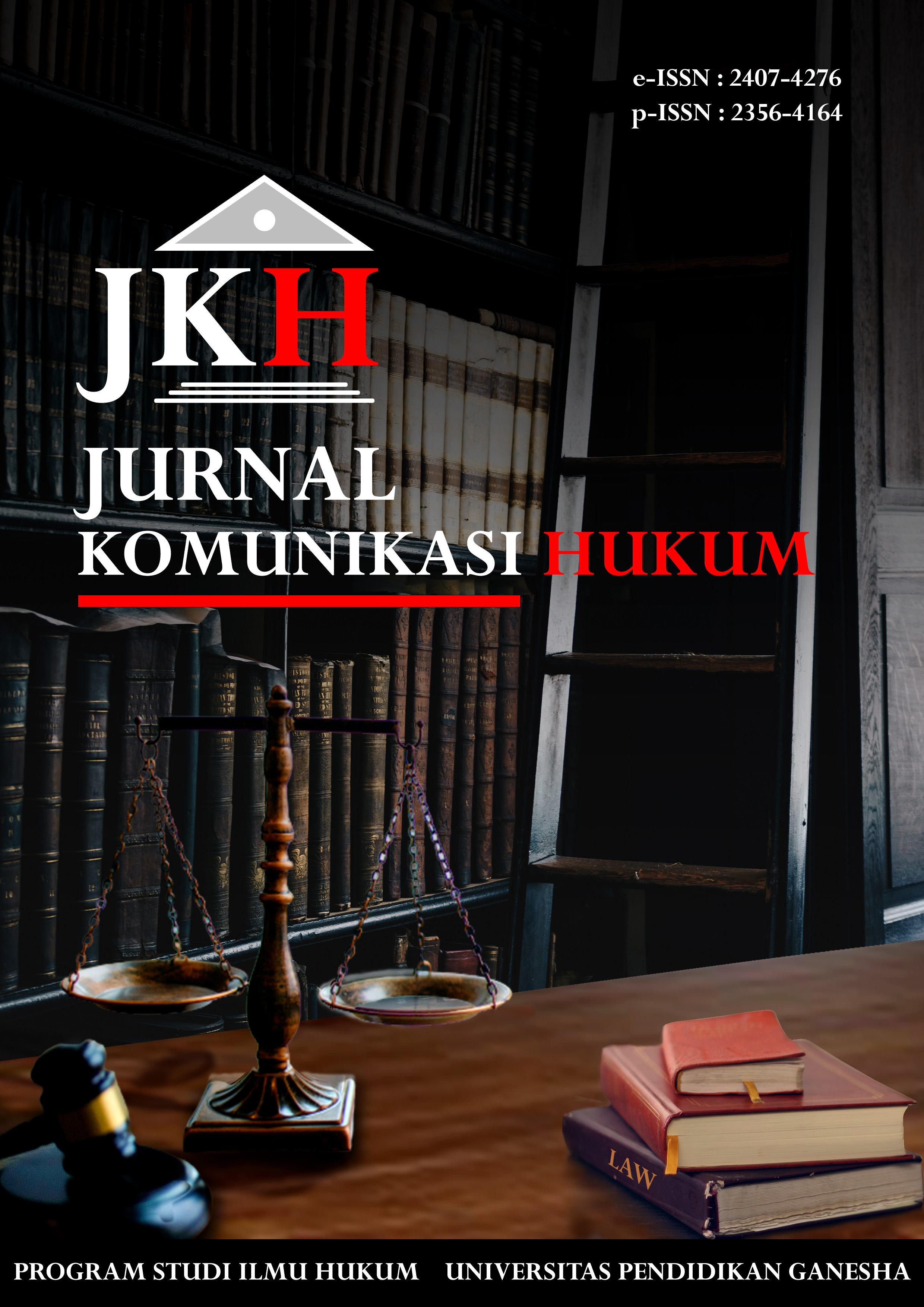Dampak Rill Implementasi Status Otonomi Khusus Di Provinsi Papua, Indonesia: Kajian Hukum Perspektif Good Governance
DOI:
https://doi.org/10.23887/jkh.v7i1.31765Keywords:
Real Impact, Special Autonomy, Papua, Good Governance.Abstract
The reforms that have occurred in Indonesia have changed the joints of the life of the nation and state. One of them is changing the centralistic system of government. The demand for reforms related to the broadest possible implementation of regional autonomy is the beginning of the implementation of the decentralization principle in Indonesia. This principle can be reflected in the presence of the Special Autonomy policy, one of which is in Papua Province. This research uses a normative legal research method with a statutory approach. The results of this research show that the stipulation of special autonomy status for Papua Province is legally based on Law Number 21 of 2001 concerning Special Autonomy for Papua Province. This law is an attempt by the central government to develop Papua to be the same as other regions. There are many specializations and special rights that the Papuan people have obtained through the determination of this status, but they are still not being implemented in real terms in the field. This is due to government inconsistencies, especially when viewed from a good governance perspective. Good governance in the principle of participation in Papua has not been implemented properly because of the existence of considerable power as a cultural representation which has not fully represented the Papuan people so that many rights and opinions and voices of the Papuan people have not been implemented.
Downloads
Published
How to Cite
Issue
Section
License
Authors who publish with this journal agree to the following terms:- Authors retain copyright and grant the journal right of first publication with the work simultaneously licensed under a Creative Commons Attribution License that allows others to share the work with an acknowledgement of the work's authorship and initial publication in this journal.
- Authors are able to enter into separate, additional contractual arrangements for the non-exclusive distribution of the journal's published version of the work (e.g., post it to an institutional repository or publish it in a book), with an acknowledgement of its initial publication in this journal.
- Authors are permitted and encouraged to post their work online (e.g., in institutional repositories or on their website) prior to and during the submission process, as it can lead to productive exchanges, as well as earlier and greater citation of published work (See The Effect of Open Access).
Authors who publish with this journal agree to the following terms:
- Authors retain copyright and grant the journal right of first publication, with the work [SPECIFY PERIOD OF TIME] after publication simultaneously licensed under aCreative Commons Attribution License that allows others to share the work with an acknowledgement of the work's authorship and initial publication in this journal.
- Authors are able to enter into separate, additional contractual arrangements for the non-exclusive distribution of the journal's published version of the work (e.g., post it to an institutional repository or publish it in a book), with an acknowledgement of its initial publication in this journal.
- Authors are permitted and encouraged to post their work online (e.g., in institutional repositories or on their website) prior to and during the submission process, as it can lead to productive exchanges, as well as earlier and greater citation of published work (See The Effect of Open Access).












